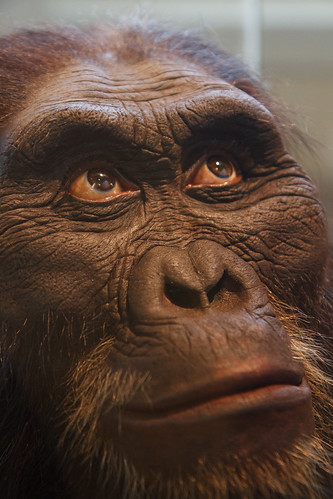Course syllabus
Semester 1, 2017
Convenor
Dr. Heather Battles
Email: h.battles@auckland.ac.nz
Office: HSB 718
Phone: Ext. 87447
Office hours: Wednedays 3-4pm (or by appointment)
Tutor
Bobbie-Leigh Jones
Email: bdud310@aucklanduni.ac.nz
Office hours to be held in the lab (HSB 706), Fridays 11am-12pm.
Points
15.0
Prerequisites
30 points in Anthropology or 60 points passed
Lectures
Wednesdays 1-3pm in 206-220 (Arts 1 room 220).
Labs
Held in the Biological Anthropology Lab (Human Sciences Building room 706).
See your individual timetable for your lab time.
Description
This course explores issues fundamental to understanding humans’ place in nature from a biocultural perspective. What led to the evolution of bipedalism, large brains and language? How do we define species in the fossil record? How can we reconstruct ancient diets and ecologies? The course will examine how new discoveries and advancements in biology are reshaping understandings of our evolutionary history.
This course is intended to build on the skills and knowledge gained in ANTHRO 102. Please consult with Dr. Battles if you have not taken 102.
Course goals
To develop, enhance, and improve your:
- Understanding of human evolutionary history and processes
- Understanding of the theories, methods, and techniques used by biological anthropologists
- Skills involved with reading and understanding scholarly literature
- Critical thinking abilities
- Ability to incorporate new evidence with existing knowledge
- Ability to synthesize and present scientific information
Learning assessments
|
Assessment |
Percentage (%) of final grade |
|
Labwork |
15 |
|
Lab test |
10 |
|
Reading quizzes |
10 |
|
Research paper proposal |
15 |
|
Research paper |
20 |
|
Final exam |
30 |
Textbook
There is no required textbook for this course. Rather, there are assigned readings which you can access online for free or through the University Library. The textbook from ANTHRO 102 is recommended as a reference and source for review:
Fuentes, A. (2012) Biological Anthropology: Concepts and Connections. 2nd edition. New York: McGraw-Hill. Available from the University Bookshop.
Assessment submission and guidelines
Labwork: Worksheets for labs will be posted on Canvas the week prior to the relevant lab – BE SURE YOU PRINT THEM OUT AND BRING THEM TO THE LAB. Worksheets will be handed in (to tutor) at end of each tutorial.
Lab test: Held during regular lab time, this will test your knowledge of hominin skeletal anatomy and ability to identify fossil hominin and living primate species from crania (casts or actual bone).
Reading/video quizzes: Quizzes on Canvas cover the assigned readings for the upcoming lectures (must be completed by 9am before the lecture on Wednesday). There is a time limit of 10 minutes for each quiz, therefore you should do the readings and make notes before attempting the quiz. There are 11 quizzes; your best 10 quiz scores will count towards your final grade.
Research paper and proposal: The research paper will consist of 1,500-2,000 words (12 pt Times New Roman font, double-spaced) on a topic of your choosing (related to course content). You will begin with a research question which you will address using evidence from peer-reviewed sources. Your research paper should include at least 8 peer-reviewed sources.
Your proposal should state your proposed topic and research question and include a brief (250 words ± 25 words) outline of what you intend to cover and completed summaries (using the "How to Read a Journal Article" template form from lab) for 2 peer-reviewed articles you intend to use in your paper.
Both the research proposal and paper should be submitted in Microsoft Word format by 4pm on the respective due dates via Canvas.
Final exam: To be scheduled during final exams period. 2 hours, both multiple choice and short answer questions.
All coursework must be submitted by the due date and time. Late work will not be accepted not marked, except in exceptional circumstances with proof in the form of a medical certificate or other written evidence (e.g. counselling certificate).
Help with academic problems
Please see your tutor or convenor if you are having problems with any aspect of the course. We are happy to see you and help you get the most out of this course.
If you need help with developing your writing skills or your ability to take effective notes, sign up with Student Learning Services located in Room 320, Level 3 in the Information Commons building. More information about their workshops and other services can be found online at www.library.auckland.ac.nz/student-learning/.
You might also wish to go to the English Language Self Access Centre (ELSAC) in the Kate Edger Information Commons building. They state that ELSAC “supports University students with all aspects of their English, offering language learning materials, computer programmes, workshops, and on-on-one language support, all free of charge and 7 days per week.”
Disabled students
Students are urged to discuss privately any impairment-related requirements face-to-face and/or in written form with the course convenor and/or tutor. Additional information for disabled students can be found at the University of Auckland Disability Services website: http://www.disability.auckland.ac.nz.
Plagiarism
The University of Auckland will not tolerate cheating, or assisting others to cheat, and views cheating in coursework as a serious academic offence. The work that a student submits for grading must be the student's own work, reflecting his or her learning. Where work from other sources is used, it must be properly acknowledged and referenced. This requirement also applies to sources on the world-wide web. A student's assessed work may be reviewed against electronic source material using computerised detection mechanisms.
For information on the University of Auckland’s position on Academic Honesty and Plagiarism, and for specific guidelines for the Conduct of Coursework and Conduct of Research, please see: www.auckland.ac.nz/uoa/about/teaching/plagiarism/plagiarism_home.cfm
Anthro 201 Course outline_Battles_2017.pdf
Course summary:
| Date | Details | Due |
|---|---|---|
